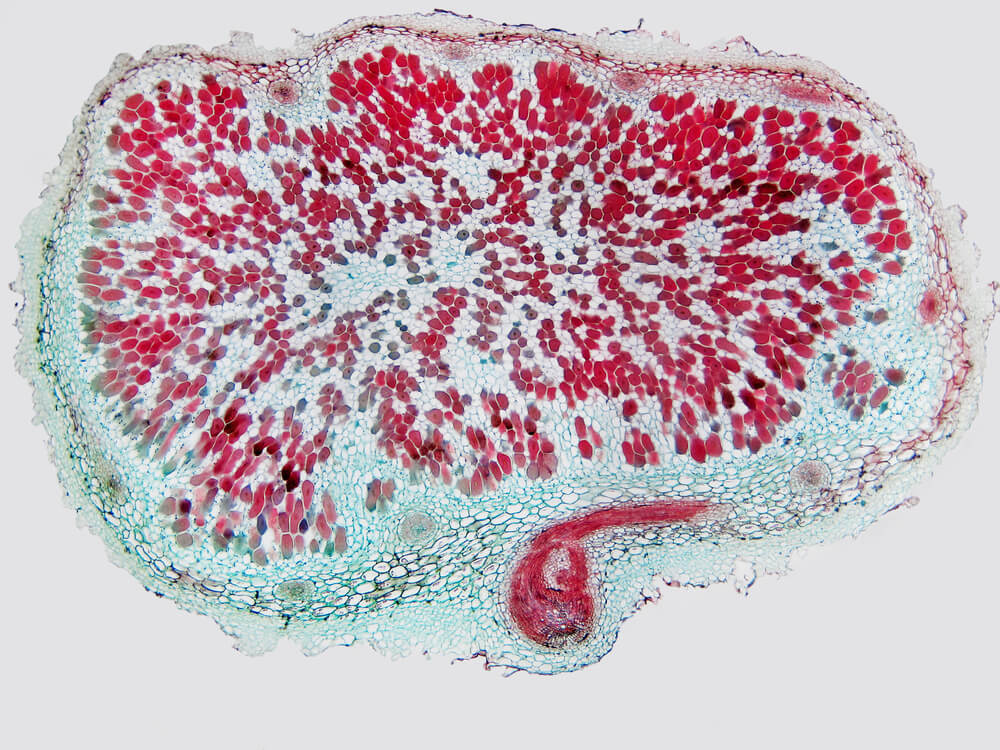A method developed at the University of Nottingham in the United Kingdom, utilizes the ability of legumes to help nitrogen-fixing bacteria, and copies this ability to other and more common food plants as well

Nitrogen fixation, the process during which nitrogen is converted into ammonia, is an essential process for the survival of plants. However, only a very few types of plants, most of them from the legume family (peas, beans and lentils) are able to fix nitrogen from the atmosphere with the help of nitrogen-fixing bacteria. Most types of plants get their nitrogen from the soil and for most of the plants that farmers grow for food around the world, this means relying on synthetic fertilizers that contain fixed nitrogen.
Prof. Edward Cocking, Director of the Center for Nitrogen Fixation in Plants at the University of Nottingham, developed a method for introducing a nitrogen-fixing bacterium into plant root cells. His breakthrough came when he found a certain strain of nitrogen-fixing bacteria in sugarcane and managed to introduce it into most of the main food plants.
This development has the potential to provide every plant cell with the ability to fix atmospheric nitrogen. This will have a huge impact on agriculture, when the plants will be able to provide themselves with the necessary amount of nitrogen without the need for fertilizers.
According to Prof. Cocking, this is necessary to reduce the nitrogen pollution caused by the use of fertilizers. Nitrate pollution is a serious source of atmospheric pollution with ammonia and nitrogen dioxide.
In addition, nitrogen pollution is also a health risk and is also the cause of 'dead zones' in rivers and oceans. The researchers estimate that the annual cost of the damage caused by nitrogen pollution in Europe reaches hundreds of billions of euros per year.
"'N-Fix' technology will help plants naturally obtain the nitrogen they need, thus helping to ensure the supply of food. The world will have to wean itself off dependence on fertilizers containing synthetic nitrogen that are produced from fossil fuels and have a high economic cost due to environmental pollution and high energy costs."
According to him, genetic engineering is not used in N-Fix. "It is a bacterium from nature that uses nitrogen from the air. It is transferred to the plant cells through the seed and provides every cell in the plant with the ability to fix nitrogen. The seeds of the plants are wrapped in bacteria to allow it to create a common advantage and symbiotic relationship and produce nitrogen naturally."
The university patented the process through its commercialization company. It is estimated that the technology will become commercial within two to three years.
I wonder what the reaction of the fertilizer manufacturers will be.

3 תגובות
Good ecological news. Savings in fertilization (costs and less nitrate pollution). And also a significant addition to food production in the world.
It is clear that the development will have to allow the infection of the seeds with the bacteria as well as to test a comprehensive effect on each type of plant. And of course learn what the effect is on weeds that harm food production and consume polluting pesticides.
The phenomenon is known and called mycorrhiza. The good news is that a nitrogen-fixing bacterium that is the most consumed element in fertilizers has been found that is adapted to a wider range of food-producing plants.
There is a danger of giving an "unfair" advantage to certain plants which will become invasive species.
Also, self-fixation will "cost more" to the plant than available nitrogen in the roots, so the process may lower the yield.
Amazing ! The question is what will be the consequences for the nutritional/health value, etc.
And it's really interesting what will happen to the lobby of the fertilizer industry...